"My father used to say this is the greatest job in the world except for one thing: the clients."
Roger Sterling, Mad Men
It goes without saying that working effectively with clients is an important part of working in an agency.
The relationship between client and agency can be volatile. Crazy deadlines, organisational pressure, budget limitations and long hours can all contribute to an emotionally charged environment.
Making these relationships work is the key to a successful agency and general workplace sanity. So, why can it be so difficult and how can we build more effective relationships?

Trust is the basis of all good relationships
All great relationships are built on trust. High levels of trust lead to better work, longer client relationships and more referrals.
"Every new business lead, meeting or project win we’ve had in the last few months has come from a former client or colleague with whom we had developed a strong relationship of trust. Trust pays."
Kevin Chesters, Chief Strategy Officer @ OgilvyUk
When both parties trust each other there is likely less misunderstanding, reduced delays and fewer reworking of ideas. The more trust you have the more leniency you may be afforded to push ideas and to push back on deadlines and budgets.
Unfortunately, it's not always that simple.
While technical knowledge is vital, nothing builds trust like the day to day experience of working together. Do you follow through? Are you responsive enough? Are you prepared enough? The list goes on.
As the old saying goes “Trust takes years to build, seconds to break, and forever to repair”
So to help, here is a non-exhaustive list of 9 tips you can use to build trust with your clients. The kind of trust that will get you through when the sh*t really hits the fan.
1. Invest the time to build a personal relationship
“Relationships are more important than technical expertise”
Robert Solomon, The Art of Client Service
Great relationships build great work. The best client relationships are not confined to meeting rooms. Heaven forbid, they may even involve seeing each other outside of work to nurture an environment where trust can be built.
Ask your client questions about life, not just about work. Send flowers on birthdays and for other key life events take them out for coffee/lunch/dinner. You need to put the effort in so that the relationship is with the person first, and the organisation they work for is second.
Dealing with the person you get to know is often easier than dealing with the organisation they represent.
Obviously, this is a two-sided coin. Clients also need to put the effort in to get to know their agency and stop thinking of them as a supplier - sorry I mean 'partner'.
2. Communicate early. Communicate often.
You need to build great communication habits into your team and culture. People need to know that when a client wants an answer on something a single word reply is just not going to cut it.
Communicating around deadlines and budgets can be difficult but it is the single most important part of building an effective working relationship with a client.
If you are going to have a bias, bias yourself towards over-communicating. Good communication means less stuff gets lost in translation.
Which brings me to my next point.
3. Good communication means no surprises
At work, unlike at birthdays, surprises can be a bad thing.
Most of us hate giving bad news - for obvious reasons - but if you see a potential issue on the horizon it's far better to talk it through with a client early than wait until it really blows up.
There are times when you need to push back on a client because what they are asking for, and the timeline they want it in is quite frankly ridiculous. Often this is because they just don't really understand what goes into getting the job done well.
Telling a client ahead of time you are not going to be finished by the deadline is not an easy conversation. However, it is a whole lot better than the one you will end up having later on - after the deadline has been missed.

4. Get to know each other's culture
"Where 90% of agencies say they truly understand their clients’ business, only 65% of clients agree"
The Naked Truth
Cultural alignment can be one of the major factors in a misunderstanding between clients and their agencies. The client needs to understand that getting the best from a team of creative people often requires a less rigid approach than corporates are comfortable with.
The best clients know that creativity, and the risks associated with it, needs to be encouraged. Most agency people are motivated by having something interesting to work on. If they were not they would go and get an easier job with less pressure and fewer hours. A good client knows this and gives the agency the leeway to pursue ideas


Conversely, the agency also has to understand the client’s culture and what is acceptable to management. You should interact with the extended teams in R&D, product, accounting and finance as you do with marketing. You will unlock new opportunities about how you can help them and grow their businesses and in turn, you will grow the agency bottom line.
The more you know about the business your client works in, the better placed you are to understand their decision making. More importantly, the more you will be able to present ideas in a way that your client can understand and represent back to their business.

6. Nail the basic stuff
It’s genuinely amazing how many people fail to do the basic things on a consistent basis. What constitutes the basic sh*t will differ by the job but if a client has an expectation that you will deliver a report every Thursday morning in time for the marketing WIP, you better make sure it's delivered every Thursday morning in time for the marketing WIP.
If you get this one wrong consistently it's a long way back.
7. Respond as soon as you can
If you get an email from a client asking for you to look into something it is best not to let it sit in your inbox for 48 hours. Send that 30-second email that shows you have received the urgent (we know they are all urgent) request and you will get back to them soon. When you are able to give them a clear timeline on when you can get back to them with a response and then make sure you do.
Just because it’s not the biggest, baddest client on the roster your approach should not change.

8. Call often, or better yet, meet face to face!
Email, text messages, slack, messenger and every other form of electronic communication are not yet up to speed with the 40,000+ years of practice we have had with words and body language.
Face time, the original version, helps build familiarity and understanding between you and your clients. Seriously.
9. Listen. Listen. Listen. Listen some more.
Too often, people want to demonstrate how smart they are on a client call or in a meeting rather than asking questions and really listening.
Always remember that clients have a wealth of knowledge and expertise that you lack. Particularly when it comes to the ins and outs of their business. Listening builds empathy which in turn builds, you guessed it, trust.
Many people on the agency side have little understanding of the breadth of a marketing clients role. Making ads, building websites and buying media may be the focus of an employee or two but the broader marketing team - and thus the most senior clients - have a lot more on their plate.
There is just so much other stuff that needs doing that the agency can be an afterthought - and while this is clearly detrimental to an effective communication campaign - it also reflects the client's everyday reality.
Listening to your clients will help you get more done and open up new opportunities you didn't know existed.
In summary
To build great client relationships you need to work hard at keeping the communication lines open. Putting a consistent effort into getting to know your clients business, fostering personal connections and communicating issues early will help you build trust with your clients.
When you and your client trust each other fully the best work will emerge.





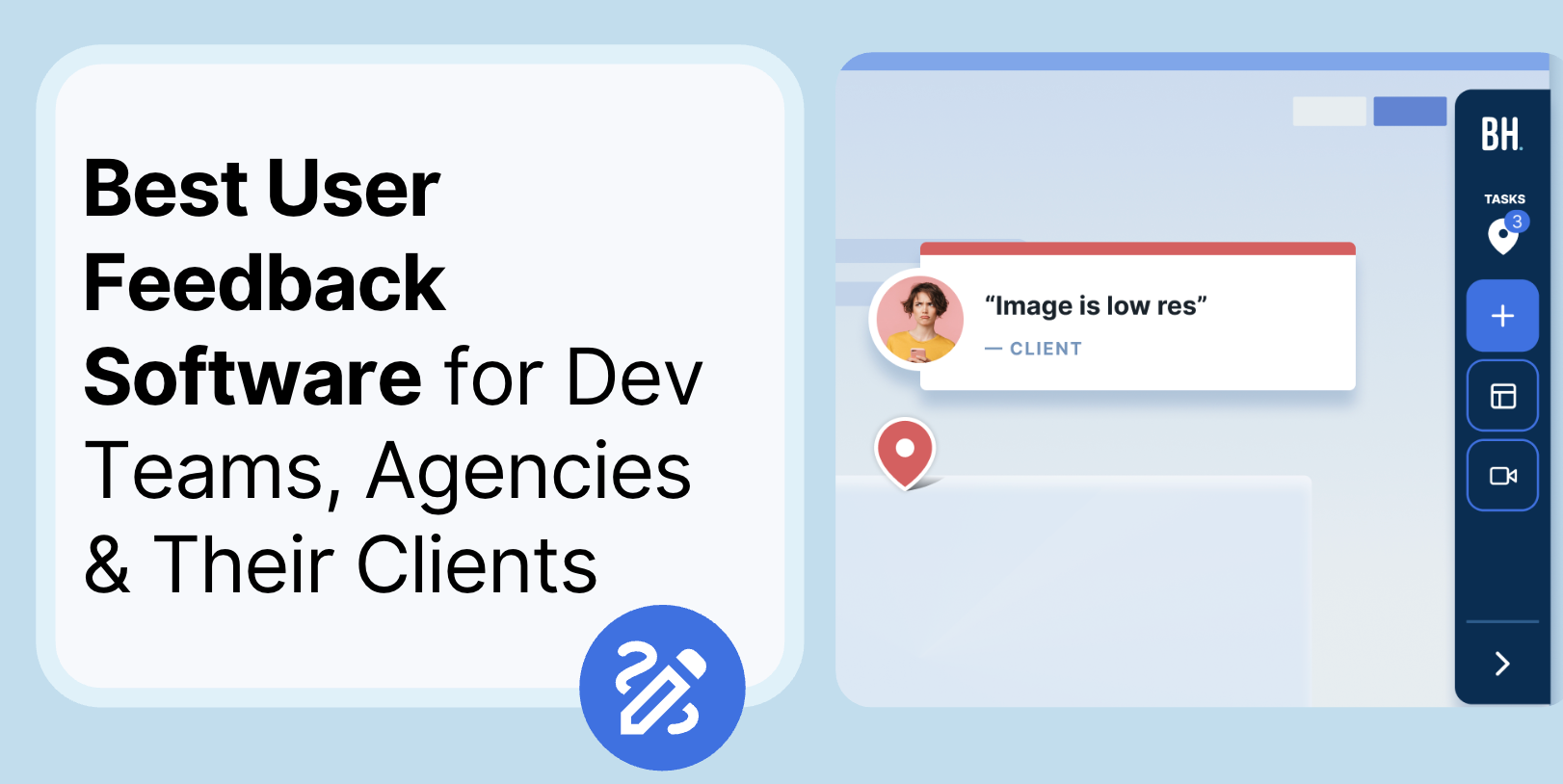


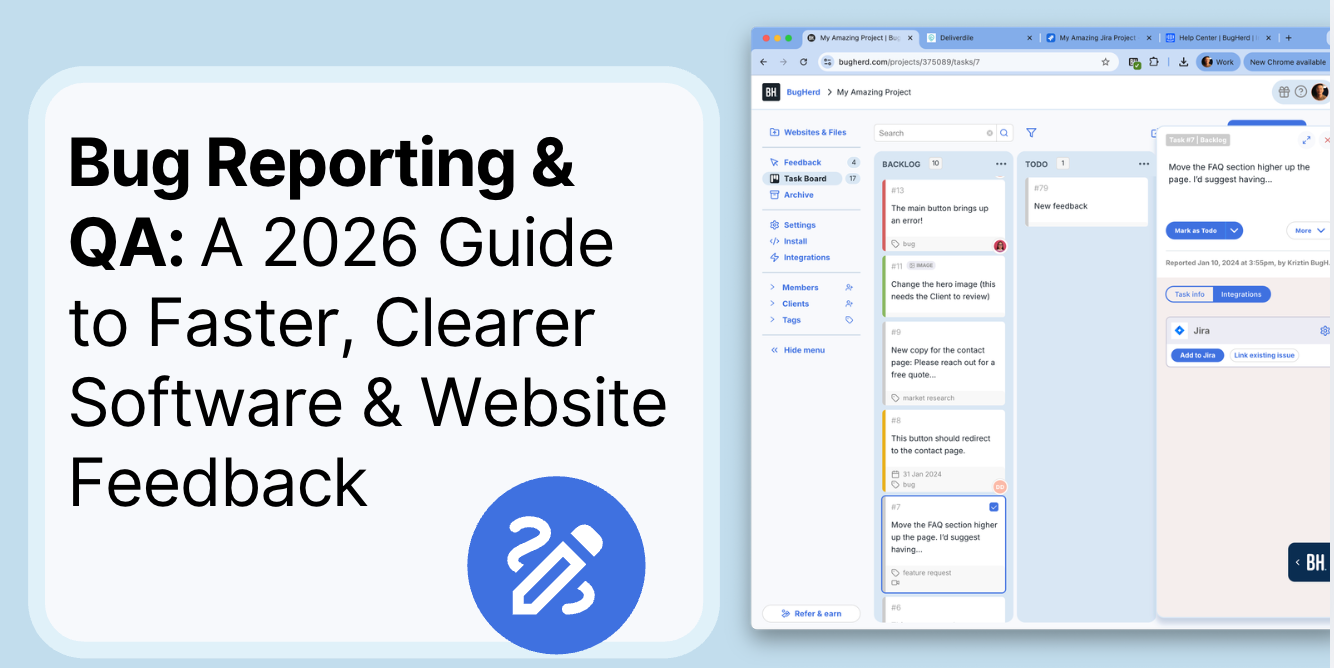

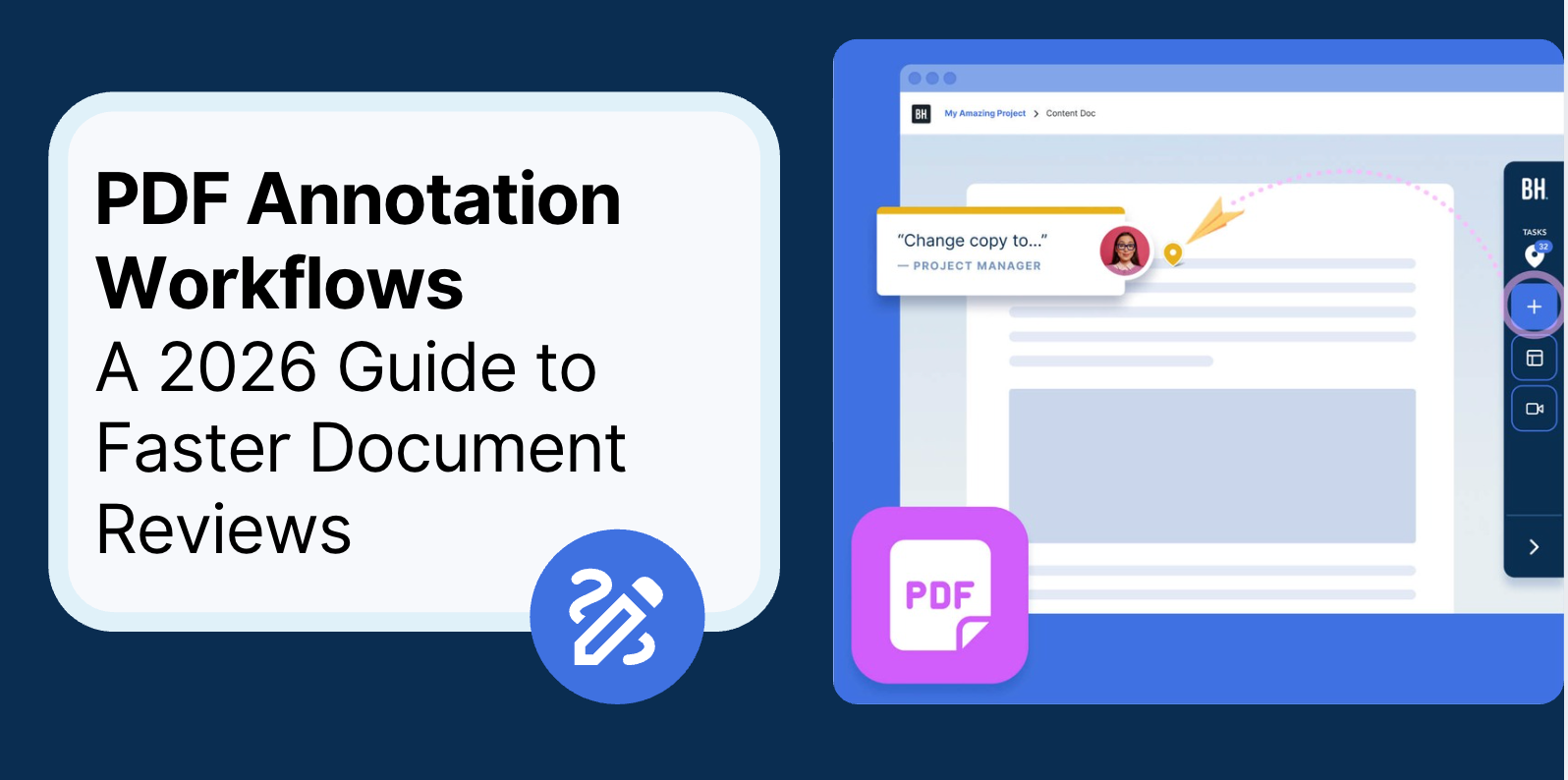
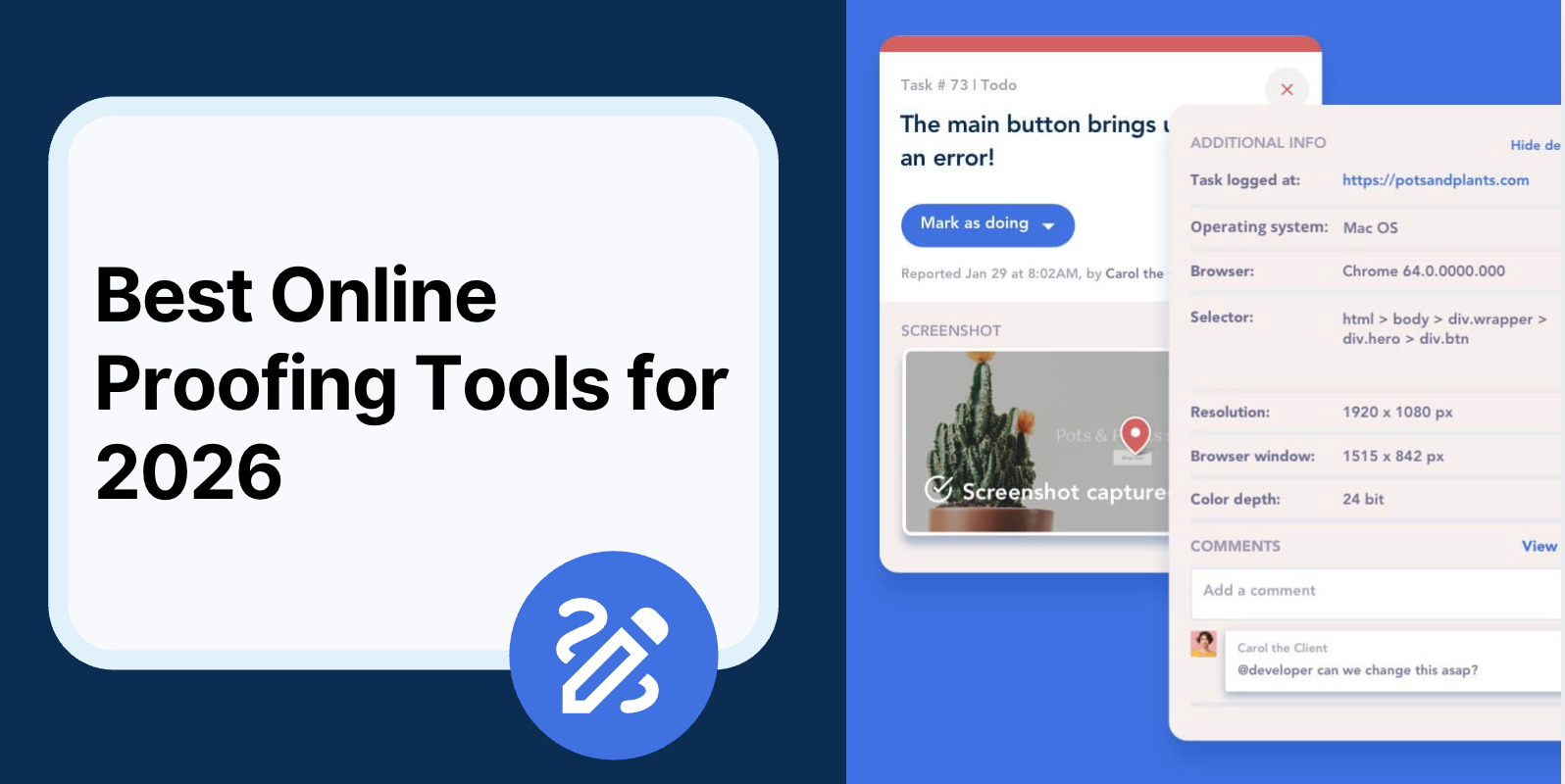
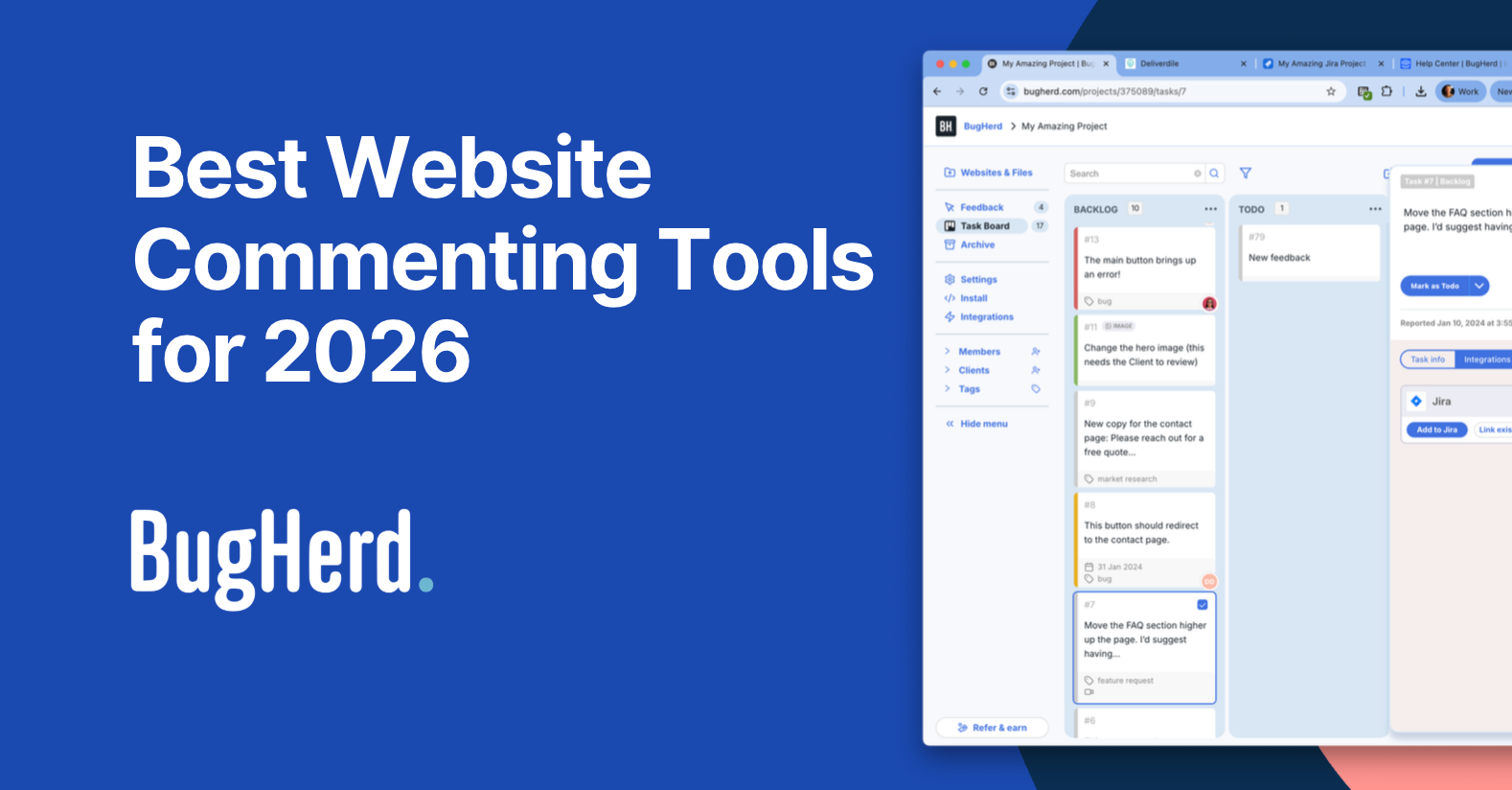




But don't just take our word for it.
BugHerd is loved by 10,000+ companies,
350,000+ users across 172 countries.
4.8/5
4.7/5
4.5/5
5/5
8.7/10
Sam Duncan 📱📏 🌱
@SamWPaquet
"@bugherd where have you been all my life??
We just migrated our bug tracking over from Asana and have at least halved our software testing time🪳👏📈. "
Ashley Groenveld
Project Manager
“I use BugHerd all day every day. It has sped up our implementation tenfold.”
Sasha Shevelev
Webcoda Co-founder
"Before Bugherd, clients would try to send screenshots with scribbles we couldn't decipher or dozens of emails with issues we were often unable to recreate."
Mark B
Developer
“A no-brainer purchase for any agency or development team.”
Kate L
Director of Operations
"Vital tool for our digital marketing agency.”
Paul Tegall
Delivery Manager
"Loving BugHerd! It's making collecting feedback from non-tech users so much easier."
Daniel Billingham
Senior Product Designer
“The ideal feedback and collaboration tool that supports the needs of clients, designers, project managers, and developers.”
Chris S
CEO & Creative Director
“Our clients LOVE it”
Emily VonSydow
Web Development Director
“BugHerd probably saves us
at least 3-4hrs per week.”